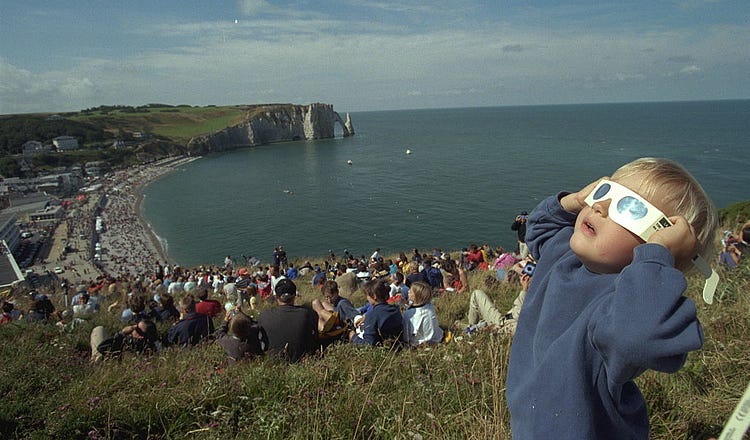Lock Up Your Kids: The Eclipse Is Coming!

Schools in the U.S. and Canada won’t let kids enjoy the eclipse like this on April 8. (Photo by Yves Forestier/Sygma via Getty Images)
In a fit of absurd safetyism, schools are canceling class on April 8 because they’re scared pupils will look at the sun.
196
On Monday, April 8, hundreds of schools across North America, from Texas to Ontario, are closing in order to protect pupils from sustaining lifelong injuries—from the sun.
Just after 11 a.m. local time, a complete solar eclipse will begin over the Pacific coast of Mexico. Its “path of totality”—the areas where the sun will be entirely blotted out—will pa…
Continue Reading The Free Press
To support our journalism, and unlock all of our investigative stories and provocative commentary about the world as it actually is, subscribe below.
$8.33/month
Billed as $100 yearly
$10/month
Billed as $10 monthly
Already have an account?
Sign In


